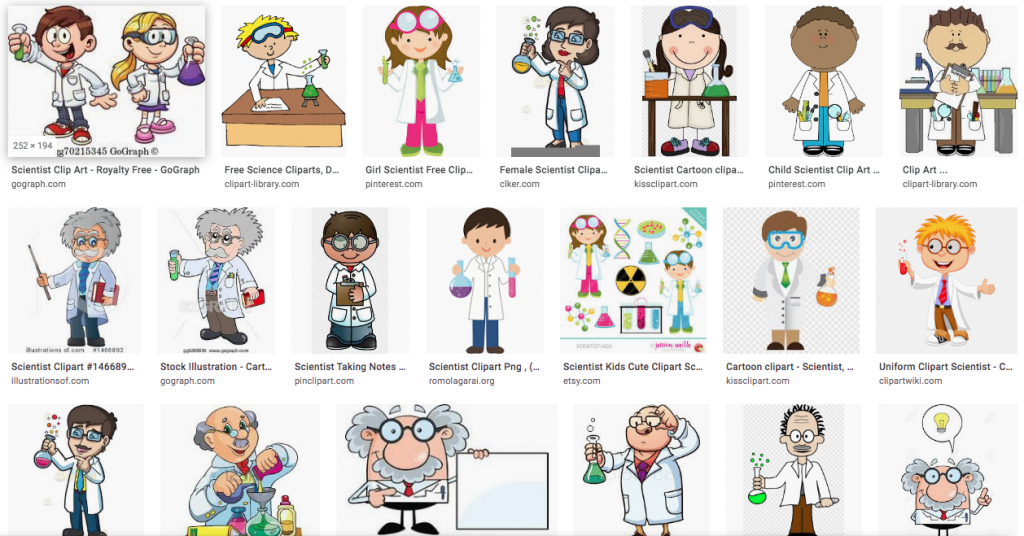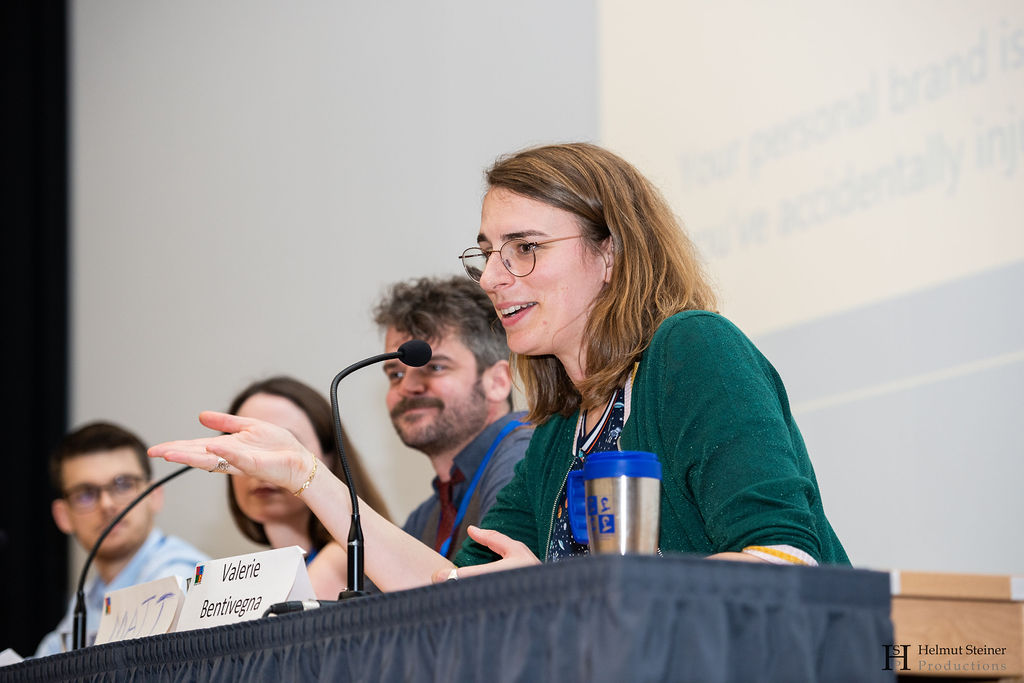Last Monday, I chaired a panel titled “Branding yourself – How creating a brand for yourself can increase your visibility, improve your communication skills, and help you navigate social media” at the Marie Curie Alumni Association Annual Conference. You can watch the full session here, where you can see the lively with panelists Martijn Peters, Nehama Lewis, and Matt Murtha.
You can also read the report from the session on the MCAA Medium Blog.
However, I wanted to take the opportunity of having a blog to outline some thoughts I had before, during and after the session. Let’s call this An incomplete Guide to Branding Yourself – to be read with a level of skepticism because I am not an expert in this field whatsoever. Also, I rarely take myself seriously, and neither should you.
Personal brand?
https://twitter.com/eleanorkpenny/status/1029644920485765120
If that would actually be my personal brand, the options are numerous. I’m notoriously clumsy and known to trip over nothing on a regular basis. I once tried kicking a football with both feet simultaneously, landed on the ball and fell backward, resulting in a broken arm. I once fell flat on my face while rushing to catch a bus I didn’t really need to catch. More recently (aka, last Tuesday) I sat in front of a bench instead of on it. But that said, I would prefer clumsy not to be my personal brand.
Though – come to think of it – I often use “tall, clumsy and nerdy – not necessarily in that order” when asked for a bio…
Let’s take a few steps back: what is a brand?
Basically, in a marketing context, a brand is what the customer/user/… thinks of a product or a company. It’s everything that is associated with that product (or company). This can mean a recognizable logo or slogan, but also an image of being a “green” company, or a “family friendly” company, or a “quirky” company. Remember Wendy’s witty responses on twitter? That’s all part of the branding.
Which brings me to the following point: What do people typically associate with “science”? A simple google image search doesn’t really look too promising:

“We need to change how the public thinks of science and scientists. We need to change the first thing people think of when they think of science. And the best way to do it? Be the brand.” *
Fair enough, but how do I “be the brand”?
Similar to a “brand”, a “personal brand” is everything that other people might associate with you. Some people have very clear personal brands, just think of famous people like Oprah, or Bill Nye (I hear you automatically thinking: The Science Guy). But you don’t have to become famous to create a personal brand, and becoming famous should not be the goal of creating a personal brand. Creating a personal brand is useful for a number of reasons:
- Thinking about how you want to brand yourself can help you figure out what makes you unique. You can create a vision of how you want people to perceive you and what your ambitions are in terms of career, or in terms of life in general for that matter. And for personal development, having a goal is always useful,
- Creating a more visible internet presence helps your visibility. Having a personal brand (or something people “remember you by”) is incredibly useful for networking and landing your dream job.
- As I said before, you can help market science (or STEM, or whatever field you are in). A powerful way to combat stereotypes is to show the rest of the world how diverse the people in your field are, and you can play your part by being the brand for your field.
With regards to actually creating a personal brand, internet presence and social media are probably the most powerful tools, whether you like it or not. My main tip is to check what turns up on the first page of google when you type in your name. Are you happy with what shows up? If not, use your internet superpowers to change your google presence (or more realistically, clean up Google search results for your name).
If you are okay with things like Twitter or Instagram or blogging, that’s a powerful method to control your brand, i.e. how you are perceived by people that might be looking for you on the interwebs. A general rule for social media is to stay authentic. It’s easy to spot people pretending to be something they’re not. That said, it’s okay to adhere a little bit to the “Fake it till you make it rule” in the sense that you can be who you aspire to be. For example, I’m not a professional science communicator, but it’s what I aspire to be. So I use it on social media, and on my business cards, etc.
Okay, this introduction was very incomplete
— I hear you thinking. And you’d be right. I highly recommend you go check out the video of the panel discussion because it was a very lively – and mildly entertaining – session (if I may say so myself) and while we might not have come up with absolute answers, we discussed topics such as authenticity, time management, and science communication in general.

And to quote a slogan from a famous brand: Just do it!
(also typically associated with Shia LaBeouf, for other reasons)
(Re)sources:
* Background about branding and quote from https://www.forbes.com/sites/paulmsutter/2019/02/10/turning-science-into-a-brand-is-a-good-thing
An example of how to create your personal brand (others available upon Google search, the internet is a marvelous place, people!): https://www.quicksprout.com/the-complete-guide-to-building-your-personal-brand/


